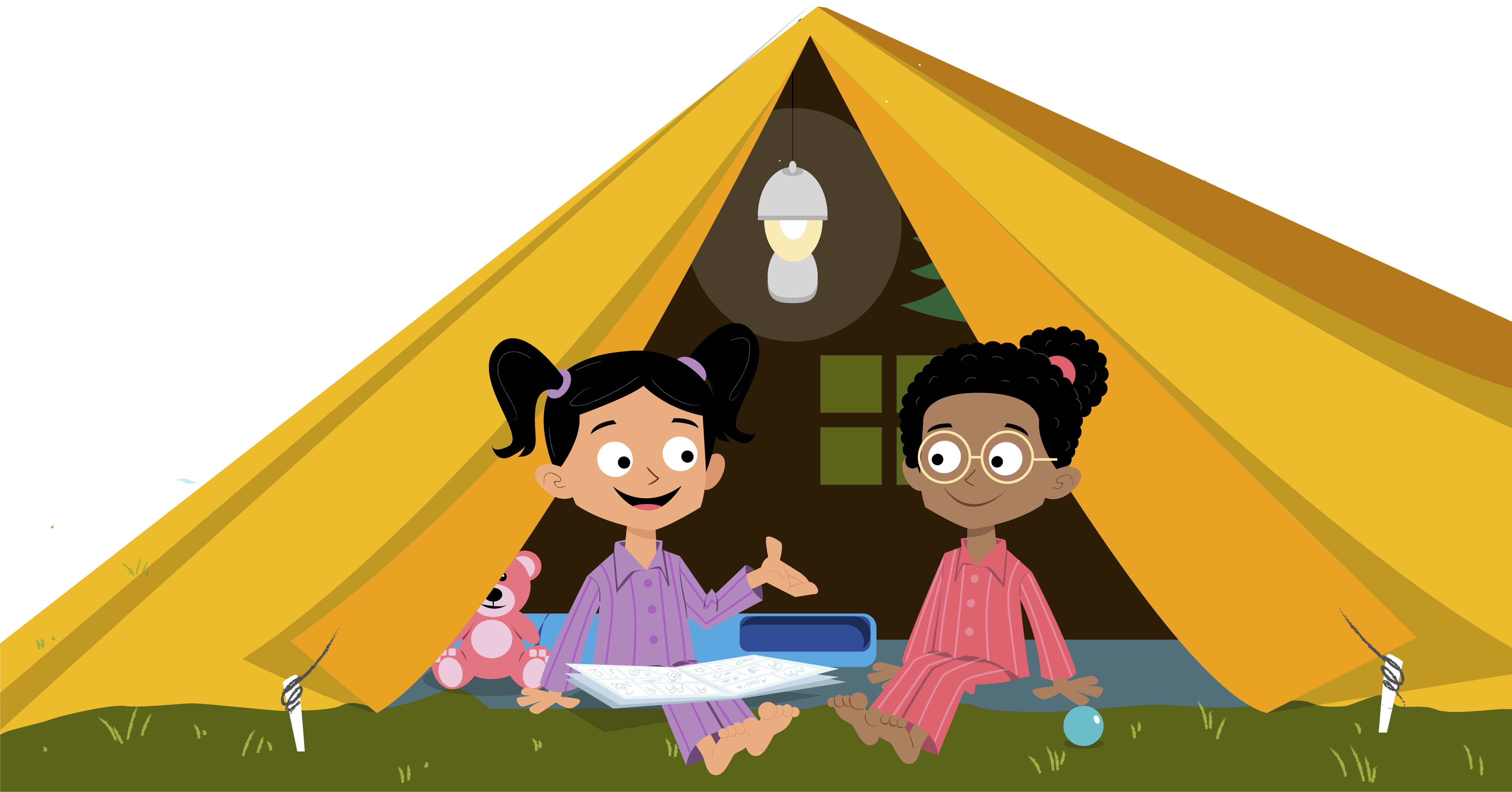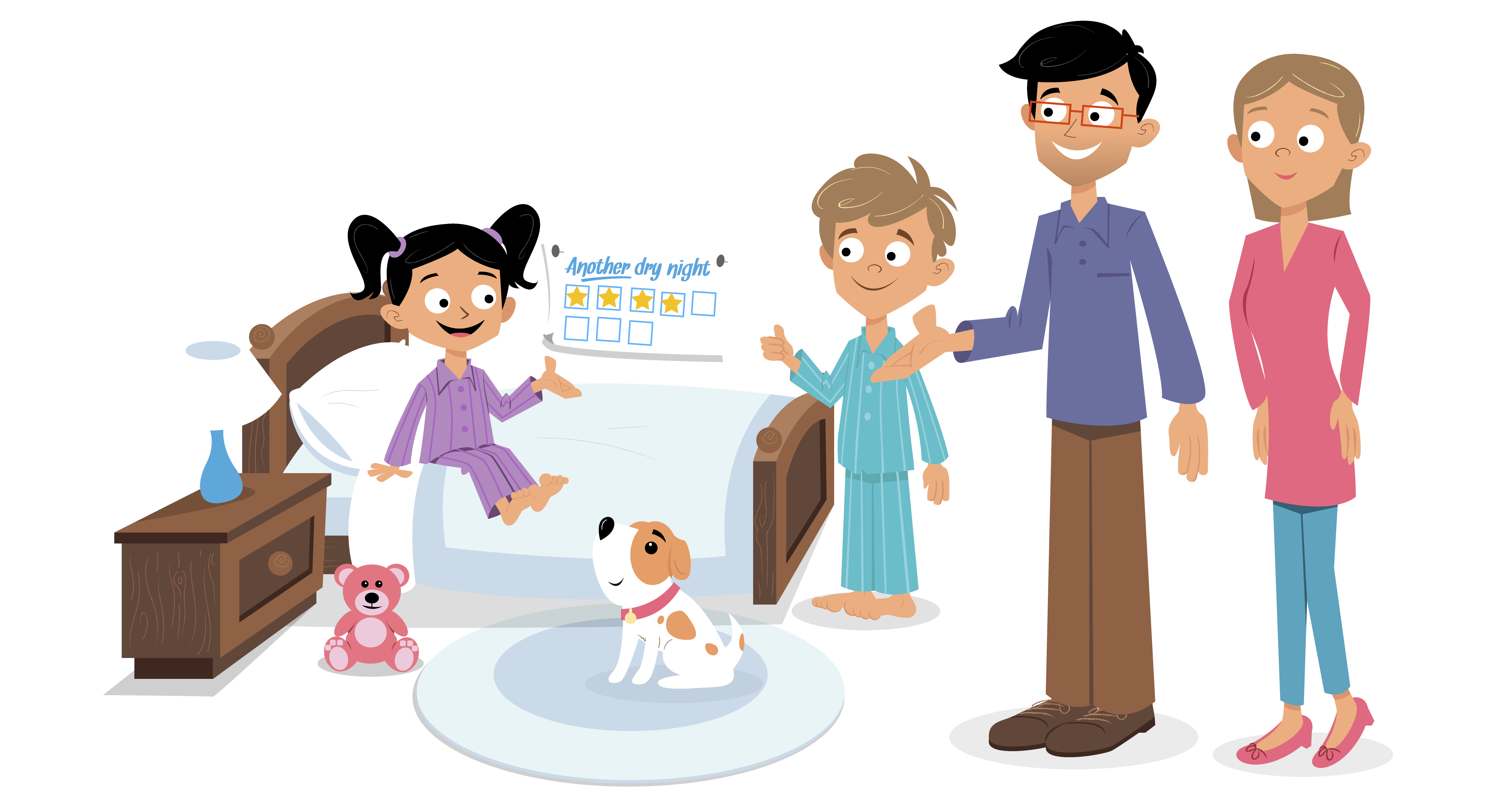How can you manage bedwetting during the school holidays?

Davina Richardson, RGN/RSCN Specialist Children’s Nurse at Bladder & Bowel UK, explains why managing bedwetting can be easier during school holidays. She also discusses the different treatment options available and how your doctor or nurse can help.
Bedwetting is a difficult and distressing condition for many children and families. There are different causes for bedwetting, including:
All children who wet the bed do so because they are unable to wake up in response to signals from the bladder during sleep. Because of the different causes, many children and young people need assessment and treatment to help resolve the condition.
It is not the child’s fault, nor that of the family’s, that they are wet when sleeping. Bedwetting is a medical condition. It does not happen because someone has done something wrong or because someone has not done something that they should have done. Because of this, children should never be punished for wetting the bed.
Bedwetting is a difficult and distressing condition for many children and families. There are different causes for bedwetting, including:
- Not being able to reduce the amount of urine (wee) produced during sleep
- The bladder not being big enough to hold all the urine produced at night
- The bladder twitching during filling
All children who wet the bed do so because they are unable to wake up in response to signals from the bladder during sleep. Because of the different causes, many children and young people need assessment and treatment to help resolve the condition.
It is not the child’s fault, nor that of the family’s, that they are wet when sleeping. Bedwetting is a medical condition. It does not happen because someone has done something wrong or because someone has not done something that they should have done. Because of this, children should never be punished for wetting the bed.
Bedwetting during the school holidays
For many families, managing bedwetting is more straightforward in the school holidays because there are less time pressures at the beginning of the day. There is, therefore, more time for the affected child or young person to have a shower or wash; to strip and remake their bed and for their parent or carer to get the bedding washed and dried.
Some children are more likely to be dry in the school holidays than they are in term time. The reasons for this are not clear, but it may be because:
- Some children drink more water-based fluids when they’re not at school. Drinking plenty of water-based drinks can help bedwetting to improve. Most school aged children should drink about 1500 mls (1.5 litres) of water-based drinks each day, and should avoid both fizzy and caffeinated drinks
- Sometimes children have different routines in the holidays. For some children, going to bed later, meaning they have a shorter night, makes them less likely to wet the bed. Some children are more prone to wetting the bed when they are very tired, such as during term time
In the summer holidays the weather may be warmer. If a child is sweating more because it is hot at night, they may make less urine overnight and so stay dry. If your child is more likely to be dry in the school holidays, do mention this if you take them to see their doctor or nurse regarding their bedwetting. Try not to be upset with your child if their wetting gets worse when they go back to school after the holidays. Discuss this with their doctor or nurse as well. If they have been on treatment over the holidays, they may need to continue this or restart it if the bedwetting reoccurs when they go back to school.
" Some children are more likely to be dry in the school holidays than they are in term time "

What can be done to help?
There are different options for treating bedwetting. Your doctor or nurse should discuss these with you and your child.
If you are going away for part of the school holidays you will need to plan how you are going to manage bedwetting when not sleeping at home. There is medication available that is effective for many children with bedwetting. This can be continued at home if it is helpful. Ask your doctor or nurse for more information.
Medication may not be suitable for every child and there are other options available, such as an alarm, as well as, or instead of medication.
The ‘enuresis alarm’ is designed to make a noise when your child starts to wet the bed, with the intention of waking them as the bladder lets go. When the alarm sounds you may need to wake your child, particularly on the first few nights as they learn to wake themselves.
Alarms often take several weeks to be fully effective and do not work for everyone. However, as they disturb both yours and your child’s sleep, particularly in the early days of using them, school holidays may be a good time to start with them. If you and your child are more tired due to the alarm waking you at night, you may be able to sleep later in the morning in the holidays.
On trips away from home, disposable pants may be useful for containing the wetting and are available in different sizes from most supermarkets. You can also buy sleeping bag liners as well as mattress and duvet protectors.
“The ‘enuresis alarm’ is designed to make a noise when your child starts to wet the bed”
There is information on the causes of bedwetting, things you can try at home that might help and how to discuss the problem with your child’s doctor or nurse at www.stopbedwetting.org
There is also information on the causes and treatments for bedwetting on the Bladder & Bowel UK website at https://www.bbuk.org.uk/children-young-people/children-resources/
Bladder & Bowel UK provide a confidential helpline with advice and support on +44 (0)161 214 4591 and at https://www.bbuk.org.uk/helpline-enquiries/
There is also information on the causes and treatments for bedwetting on the Bladder & Bowel UK website at https://www.bbuk.org.uk/children-young-people/children-resources/
Bladder & Bowel UK provide a confidential helpline with advice and support on +44 (0)161 214 4591 and at https://www.bbuk.org.uk/helpline-enquiries/
By Davina Richardson, RGN/RSCN Specialist Children’s Nurse, Bladder & Bowel UK
Ferring UK Ltd sponsored Bladder and Bowel UK who have supported the creation of this content
Job code: UK_IE-URO-2300009 I Date of preparation: August 2023
If you have specific questions or concerns, talk to your child's doctor, school nurse, health visitor or pharmacist.
Bladder and Bowel UK offer a confidential helpline. If you would like to speak to someone, email: bbuk@disabledliving.co.uk or phone: +44 (0)161 214 4591. You can also visit this website for more information: www.bbuk.org.uk/children-young-people/children-resources.
Support, information and resources are also available from ERIC, The Children’s Bowel and Bladder Charity: www.eric.org.uk and their freephone helpline: +44 (0)808 169 9949


This website is intended for UK residents only.
Job code: UK-MN-2300010 I Date of preparation: June 2023




